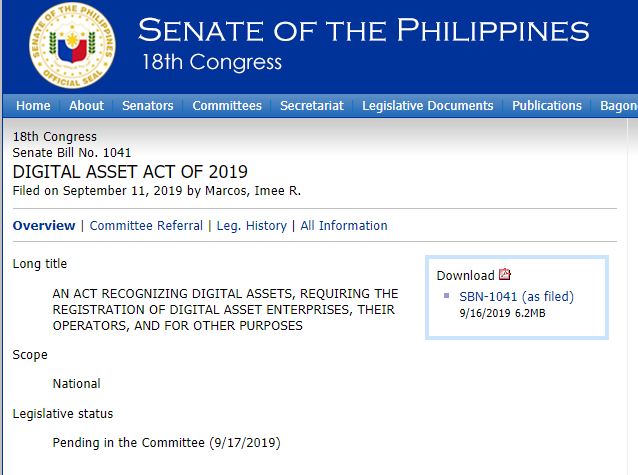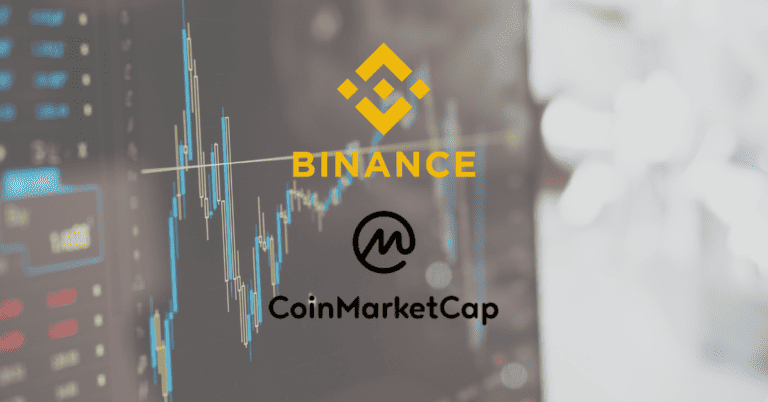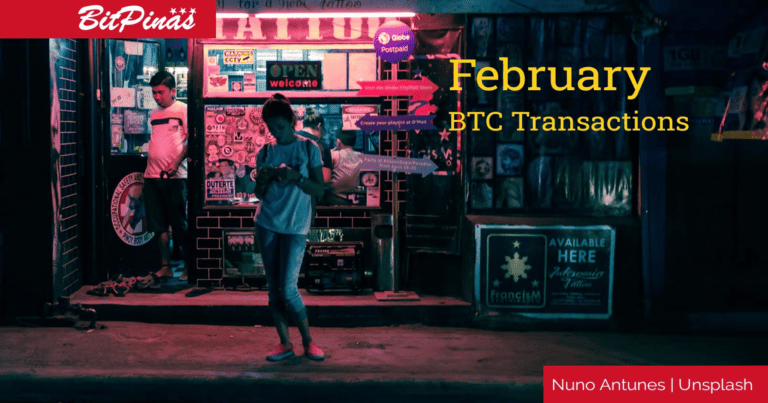Senator Imee Marcos Proposes Bill to Clarify Digital Assets and Standardize Licensing of Virtual Currency Operations
In her explanatory note, the newly-elected Senator explained how the current regulatory landscape when it comes, in particular, with cryptocurrencies is highly disorganized.

September 25, 2019 – Senator Imee R. Marcos has proposed a bill that aims to clarify and institutionalize the rules regarding digital assets.
Senate Bill no. 1041, or the Digital Asset Act of 2019, introduced by Sen. Marcos to the Eighteenth Congress discusses the current digital asset landscape in the Philippines and possible rules that will aim to recognize digital assets by defining what they are, as well as standardizing the licensing process for virtual currency exchanges, e-money, and virtual asset businesses.
In her explanatory note, the newly-elected Senator explained how the current regulatory landscape when it comes, in particular, with cryptocurrencies is highly disorganized. Currently, the Bangko Sentral ng Pilipinas (BSP), through its monetary mandate, regulates transactions related to digital assets. In fact, any exchange that wants to do crypto-to-fiat transactions as a business must register with the regulator as Virtual Currency Exchange Licensee.

The Cagayan Economic Zone Authority (CEZA) also issues licenses under its “Financial Technology Solutions and Offshore Virtual Currency Exchange (OVCE) Business Rules and Regulations”. There are regular OVCE Principal and Regular Licenses, both of which only allows to conduct “offshore” businesses. This means they cannot service Philippine residences because the BSP regulates the local exchanges. The Securities and Exchange Commission (SEC), meanwhile, is the agency responsible for virtual asset offerings and operation of crypto trading platforms. The Commission is still in the process of creating rules for both activities and had so far released draft rules (and has sought the public’s opinion based on these draft rules). Senator Marcos’ explanatory note to the bill noted that “there are questions regarding the legal authority of CEZA to issue licenses.”
The Senator also said that standardizing the rules on digital assets will allow the Philippines to enjoy the advantages being offered by this technology. One, she said, is the ease of transactions – making them faster and cheaper. Another is that digital assets can address financial inclusion. Because many Filipinos (78% according to the 2018 Financial Inclusion Survey) do not have a bank account, it resulted to not having a credit history, and without credit history, it is difficult for most people to avail of bank loans. This will result in Filipinos availing of alternative lending services (which, in this writer’s opinion, charges ridiculously high late payment fees and interest fees.) Senator Marcos said that through the use of digital assets, Filipinos will accumulate a transaction history and “will improve the geographic reach of the financial system among those living in far-flung areas.”
This very bill is the subject of a Senate Hearing by the Committee on Banks, Financial Institutions, and Currency chaired by Senator Grace Poe. It was recommended that a task force be created to study this field before passing a law governing the subject matter. This “cryptocurrency task force” will be composed of government agencies like the BSP, SEC, and the Bureau of Internal Revenue (BIR) as well as the participation of Fintech Alliance PH group and companies engaged in the field like SCI Ventures.
Source: Senate Bill no. 1041 which can be accessed on the Senate’s website or through this link.
This article is first published on BitPinas: Senator Imee Marcos Proposes Bill to Clarify Digital Assets and Standardize Licensing of Virtual Currency Operations





